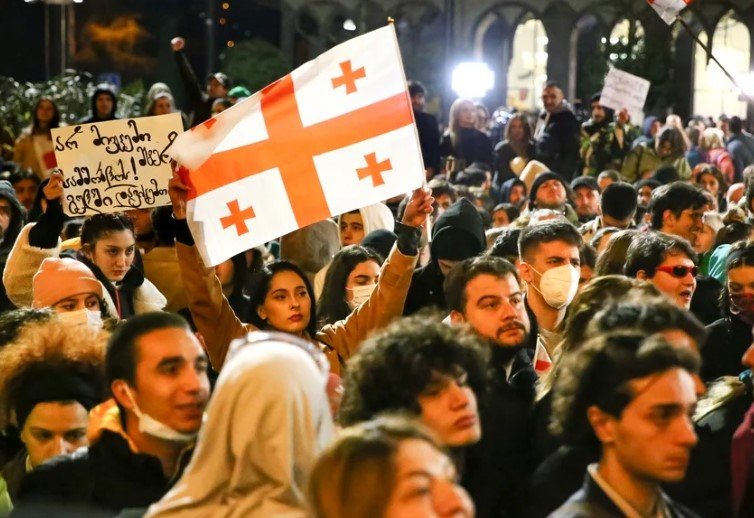Georgian President Salome Zurabishvili has come out swinging against the heavy fines imposed on demonstrators, calling the penalties unjust and excessive. At the same time, she has drawn attention to billionaire Bidzina Ivanishvili’s recent ability to import an art collection worth half a billion dollars without paying customs fees.
Protesters Face Staggering Fines
Authorities have reportedly issued $300,000 in fines in just one day to protesters taking to the streets against the government. Since the start of the demonstrations, the total amount of fines has climbed to a jaw-dropping $18 million.
Zurabishvili was direct in her condemnation. “$300,000 of fines imposed on peaceful protesters in one day. $18 million since the start of protests,” she stated, emphasizing what she sees as an unreasonable crackdown on public dissent.
The protests, which have gripped Georgia in recent months, have seen thousands march against policies they view as authoritarian. The government’s response has included not only financial penalties but also reports of excessive force, raising concerns from human rights organizations.

Ivanishvili’s Tax-Free Art Sparks Outrage
While protesters are being hit with fines, former Prime Minister and billionaire Bidzina Ivanishvili appears to be benefitting from Georgia’s tax regulations. Thanks to what Zurabishvili calls an “offshore law,” he was able to bring an art collection valued at $500 million into the country without paying customs duties.
Zurabishvili wasted no words in calling out the apparent contradiction. “Thanks to the ‘offshore’ law and avoiding sanctions, Ivanishvili brought to Georgia his art collection worth $1/2 billion, without paying any customs fees!” she said.
The revelation has fueled accusations that Ivanishvili, widely considered the most powerful figure in Georgian politics despite not holding public office, enjoys privileges unavailable to ordinary citizens. Critics argue that while everyday Georgians face financial pressures and rising living costs, the country’s wealthiest are taking advantage of loopholes.
Public Reaction and Political Ramifications
The double standard has not gone unnoticed. Social media has been ablaze with frustration, with many Georgians questioning why peaceful demonstrators are being financially penalized while elite figures continue to benefit from special treatment.
- Many protesters see the fines as an attempt to suppress dissent and discourage future demonstrations.
- Critics argue that the tax-free import of high-value art for a billionaire highlights a broken system that favors the powerful.
- Opposition leaders are calling for greater transparency and fairness in how laws are applied.
This latest controversy comes at a time of increasing political tension in Georgia, with the government facing accusations of backsliding on democracy and aligning itself more closely with Russia. The European Union has expressed concern about Georgia’s trajectory, warning that crackdowns on civil liberties could jeopardize the country’s aspirations for closer ties with the West.
What’s Next?
With elections approaching, the government’s handling of protests and its relationship with powerful figures like Ivanishvili will likely remain in the spotlight. The opposition is seizing on the issue, framing it as a battle between an elite that benefits from special privileges and a population struggling under increasingly restrictive policies.
Zurabishvili, whose role as president is largely symbolic, has positioned herself as a vocal critic of the current government, despite her initial alignment with the ruling Georgian Dream party. Her statements suggest growing friction between her and the country’s leadership, which could have wider political implications.
For now, Georgians are left with unanswered questions. Why are ordinary citizens paying the price for protesting while the wealthiest seem to operate under a different set of rules? As anger grows, the streets of Tbilisi may see even more demonstrations in the coming weeks.
